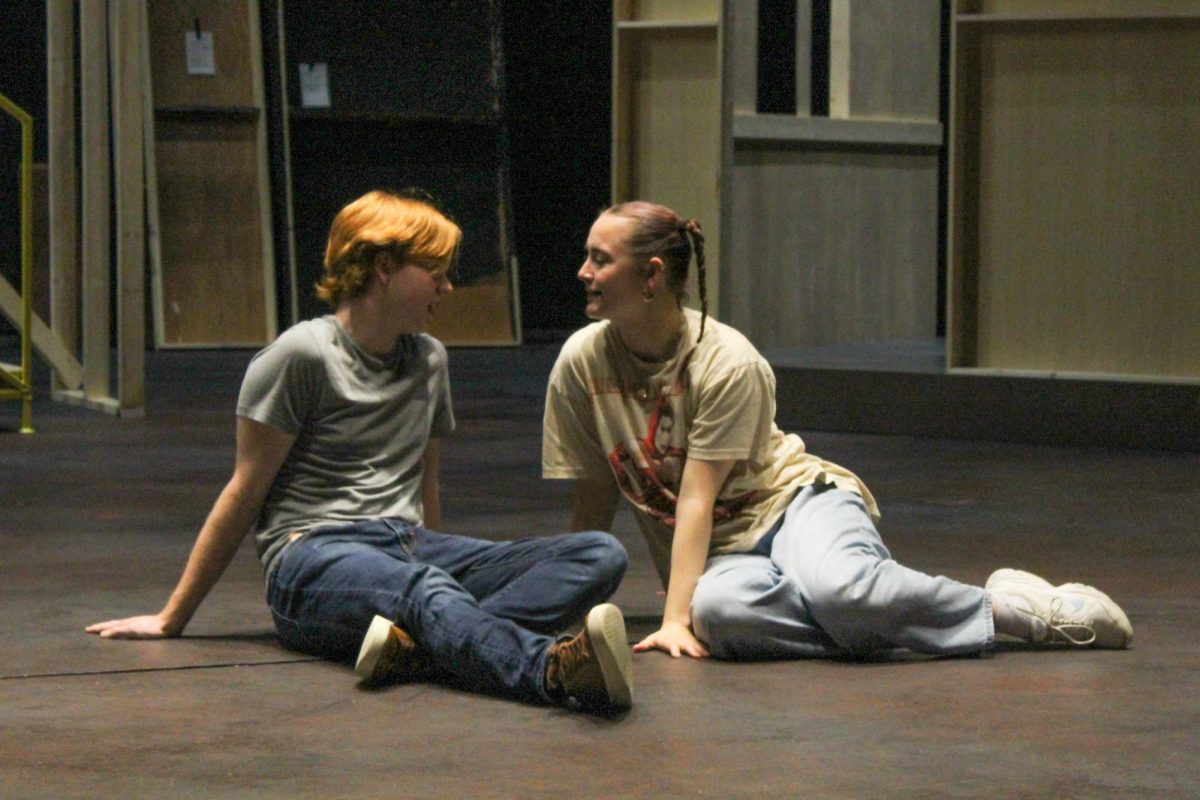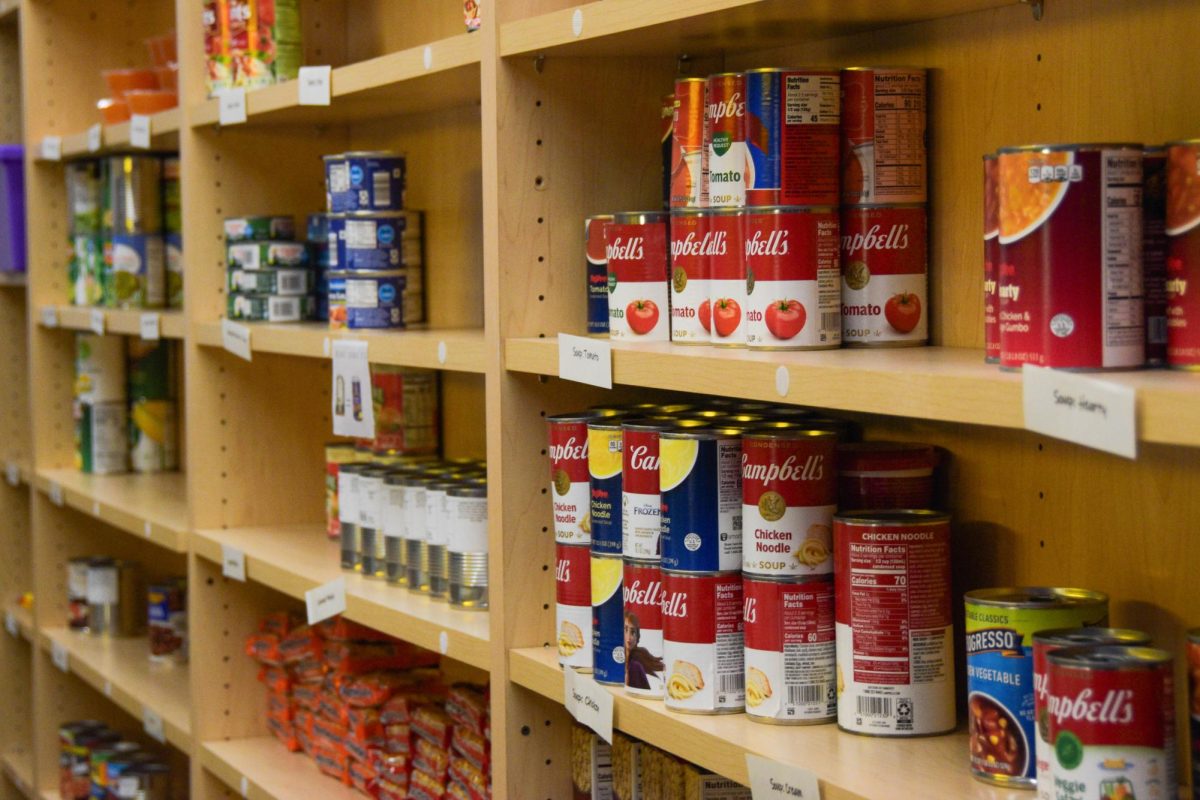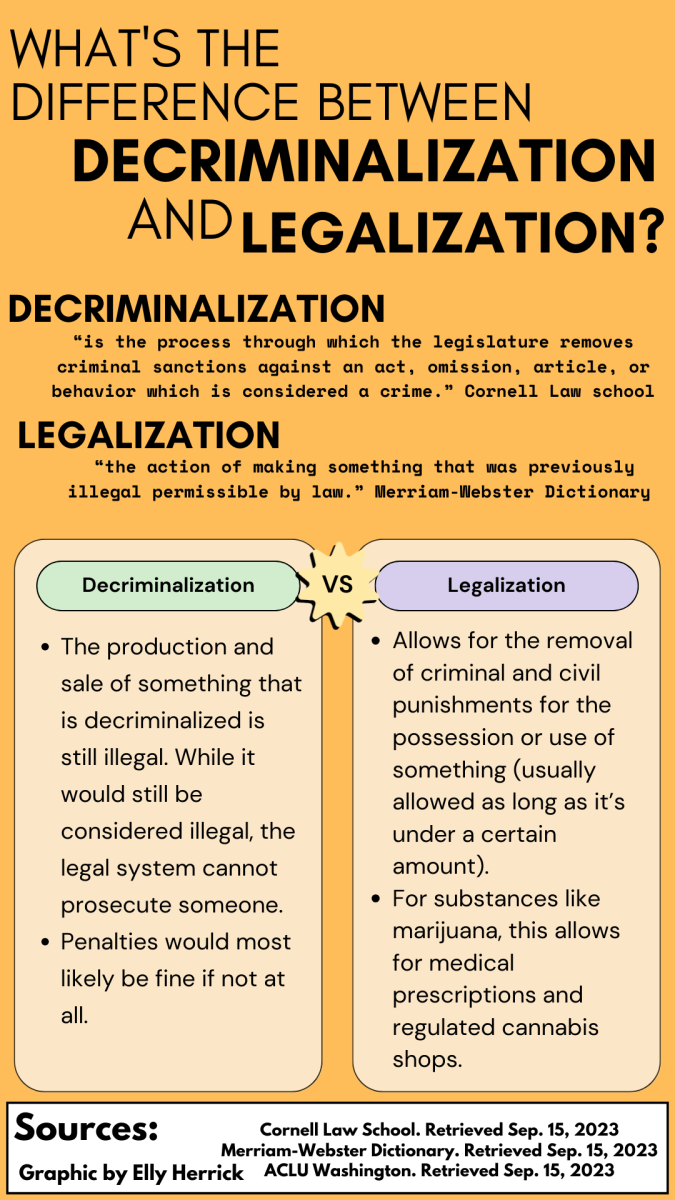Courtney Kowalke/Winonan
Sociology Assistant Professor Nicole Civettini presented “Laundry or Lawn Mowing? Housework as Gender Performance in Same-Sex Couples” as part of Winona State University’s Athenaeum series Wednesday.
“Sex may be held constant for both members of the couple but there are still gender differences,” Civettini said.
The program exploring same-sex couple roles was held on the second floor of the Darrell W. Krueger Library and attended by 30 students, staff, and community members.
Civettini discussed her test of an original theory that incorporated the idea of normative and non-normative gender displays with the “gender performance” approach and a trend toward gender liberalism among lesbians and gay men.
Civettini “found that housework was not used to differentiate a gender identity, but within the sample, women who expressed greater masculinity did a smaller share of housework while men who expressed greater femininity contributed a larger share of housework.”
Coincidentally, the survey results were presented the day before National Coming Out Day.
Civettini began teaching at Winona State in 2010 after receiving her PhD in Sociology from the University of Iowa in 2009.
She teaches courses in family, social psychology and research methods.
Civettini focuses her research on family diversity, household labor, identity and group processes.
The study examined Wednesday was a result of Civettini’s dissertation work.
“I look at it as the project that will never die,” Civettini joked. Though the hypotheses examined for the athenaeum presentation were not the same hypotheses she tested for her dissertation, Civettini said the topic is one she could keep digging into.
“This study is about recognizing same-sex couples as families,” Civettini said.
The 2010 American Community Survey (ACS) used to track dynamic demographic changes, noted that about 600,000 couples surveyed were same-sex couples. It also showed that about 152,000 of these couples were married.
“That’s a pretty substantial group of people,” Civettini said.
Previous studies have been done to track inequalities in housework for heterosexual couples. Some of these studies also examined gender performance or display as Civettini did in her research.
“Housework is a process by which we define gender identity,” Civettini said.
Indeed, Civettini was able to split chores into distinct gender roles. She defined Routine Housework as female-typed labor, primarily laundry, cooking, cleaning, shopping, and looking after children.
Discretionary Housework on the other hand is male-typed labor, examples being outdoor tasks like lawn mowing, shoveling, and raking, as well as machine maintenance.
“Discretionary work is flexible,” Civettini explained. “It’s not as regular as Routine Housework, as the names indicate. These are tasks that you can put off for a while.”
429 people participated in Civettini’s online survey, with the data being collected between 2007 and 2009. Of those polled, 40 were married and 29 were legal partners. Civettini focused her analyses on the 244 gay people who were at least living together if not otherwise in a civil union.
Participants were asked about seven life categories such as background, family, current relationships, health, mental and health. Civettini also asked about household labor and its division during this session.
Controls for the study such as age, race, education and family background were also evaluated in this stage.
Only 70 of the people surveyed had children, which Civettini said was not enough for her to collect data on for her study.
Civettini then gave participants a list of 16 items to “test” gender to see if they were more feminine or masculine. Ranking qualities like kind, nurturing, gentle, and warm higher gave people a higher feminine rating while traits like leader, aggressive, and powerful led to a higher masculine rating.
“These traits were very stereotypical,” Civettini said.
She also noted that rankings for all qualities worked in independent continuums, meaning a subject could rank as both very masculine and very feminine or not very stereotypical in either gender respect.
The survey then had participants measure their work hours and measures of income in proportion to the hours and incomes of their partners.
Additionally, participants used a parallel five-point scale to judge how much housework they do in proportion to their partners.
“I found myself after the fact wishing I had used a more nuanced scale to judge these answers,” Civettini said.
Civettini presented four hypotheses to be proved or disproved for her study.
Her hypothesis that gay men who express greater femininity will perform greater proportions of housework than gay men who express less femininity was substantially supported.
Similarly, the theory that lesbians who express greater masculinity will perform smaller proportions of housework than lesbians who express less masculinity was also supported.
Civettini’s third hypothesis that lesbians who work more hours relative to spouse or partner will perform a smaller proportion of housework than lesbians who work fewer hours relative to spouse or partner was only partially supported.
However, her hypothesis that gay men who work more hours relative to spouse/partner will perform a smaller proportion of housework than gay men who work fewer hours relative to spouse/partner was supported.
“We create gender through a display of behavior and characteristics,” Civettini said. “Housework is one tool for gender performance, and we see gender constantly produced and reproduced through that.”
However, the survey could have been skewed by pre-existing gender liberalism among gay men and lesbians. Same-sex couples are more attuned to issues of equality and could therefore pay more attention to dividing tasks such as housework more evenly.
“If you are trying to express a non-normative behavior, you will be aware and do less housework or less stereotyped housework,” Civettini said. “There is some desire to eschew gender-typical behavior.”
Civettini’s research also showed that couples do also take time availability into consideration.
“We do see a pragmatic division of labor among most couples,” she said.
Civettini believes her study is “a good first step” toward examining trends more in-depth. “What I’m basically trying to do here is discern reality, just a piece of it. This obviously doesn’t reflect the whole country.”
Contact Courtney at [email protected]



































































